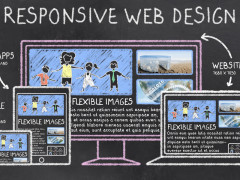When was the last time you asked someone out on a date, face-to-face? This may sound a bit prehistoric. Doesn’t it? That’s because the simple act of social interaction has been redefined by digital interaction. Mobile messaging apps have revolutionized the way people communicate.
Over 2.6 billion people have at least one mobile messaging app installed on their smartphone device. Today’s global market seems to be defined by a small handful of messaging apps. Each app offers the ability to capture a moment in ways the other cannot. The increased competition for content exposure has forced some mobile apps to implement similar features.
Recently, Instagram integrated a story feature to their app similar to Snapchat. Instagram has a much larger following than the “exclusive” Snapchat. If this new “clone” attempt by Instagram discovers a footing in the market, it shows that market disruption is more useful when one company duplicates the strengths of another and turns them into weakness.
Because of their demonstrated income streams, mobile messaging has changed the way businesses advertise. With these apps, companies are less dependent upon selling their product. Through mobile messaging apps, businesses can establish a presence and create a greater brand awareness.
Profits are often affected by who (or what) controls the information funnel. Corporate giants, such as CNN and ESPN will be distributing original content directly through Snapchat’s new feature.
“They’re aggregating people’s attention and linking it to other forms of commerce,” Mitch Lasky told the New York Times. He’s a Snapchat board member and a partner at the venture-capital firm Benchmark.
Mobile messaging apps have changed the way we communicate. They are captivating, exclusive, and unique. They have changed how we share ideas and re-shaped the market, all in the palm of your hand.





Leave a Reply